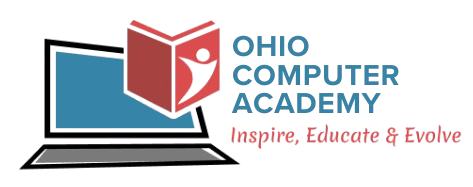The Python Certified Entry-Level Programmer (PCEP) is a certification that demonstrates foundational knowledge and skills in Python programming. It indicates that an individual is capable of handling basic Python tasks, such as understanding syntax, managing data types, and writing simple scripts. This certification is ideal for beginners starting their career in Python programming or related fields.
This course offers a solid foundation in Python programming, focusing on essential concepts such as data types, basic input/output operations, and control structures. You will learn to use lists, tuples, and dictionaries to manage and organize data, and gain hands-on experience with defining and utilizing functions. Perfect for beginners, this training provides practical skills to build and enhance your Python programming capabilities.
Launch your career in Python by developing in-demand skills and become job-ready in 30 hours or less.
Highlights
Upgrade your career with top notch training
- Enhance Your Skills: Gain invaluable training that prepares you for success.
- Instructor-Led Training: Engage in interactive sessions that include hands-on exercises for practical experience.
- Flexible Online Format: Participate in the course from the comfort of your home or office.
- Accessible Learning Platform: Access course content on any device through our Learning Management System (LMS).
- Flexible Schedule: Enjoy a schedule that accommodates your personal and professional commitments.
- Job Assistance: Benefit from comprehensive support, including resume preparation and mock interviews to help you secure a position in the industry.
Key Learnings
- Gain a solid foundation in Python syntax, including variables, data types, and basic operations to write simple programs.
- Learn to use control flow statements such as if-else conditions and loops (for and while) to make decisions and iterate through data.
- Understand how to define and call functions, pass arguments, and return values, promoting modular programming and code reuse.
- Explore the primary data structures in Python, including lists, tuples, sets, and dictionaries, and learn how to manipulate and access data effectively.
- Acquire skills to read from and write to files, enabling the handling of external data and data persistence in applications.
- Learn to manage exceptions and errors in programs using try-except blocks, improving code reliability and user experience.
- Understand the fundamentals of object-oriented programming, including concepts like classes, objects, attributes, and methods, laying the groundwork for more advanced programming techniques.
- Equip oneself with the knowledge and skills necessary to confidently take the Python Certified Entry Level Programmer (PCEP) certification exam.
Pre-requisites
- Basic Computer Skills: Participants should be comfortable using a computer, navigating file systems, and utilizing basic software applications.
- No Prior Programming Experience Required: While programming experience is not necessary, any exposure to basic programming concepts or languages can be beneficial. However, the course is designed to cater to complete beginners.
Job roles and career paths
This training will equip you for the following job roles and career paths:
- Python Developer
- Software Tester/Quality Assurance (QA) Analyst
- Automation Tester
- Data Analyst
- IT Support Engineer
- Web Developer
Python Certified Entry Level Programmer (PCEP)
The demand for the Python Certified Entry-Level Programmer (PCEP) is growing as more companies seek individuals with foundational Python skills to assist in various programming and data-related tasks. This certification helps entry-level professionals stand out in the job market by validating their basic Python knowledge and skills, making them suitable for roles such as developer, Web Developer or data analyst.
Certification
After the completion of the course and the exam, you will be awarded the course completion certificate.
This course also guides and encourages participant to become Python Entry Level Programmer (PCEP) .
Topics of Course
-
Overview of Python and its applications
-
Installing Python and setting up the programming environment
-
Understanding the Python syntax and execution model
-
Writing and executing basic Python scripts
-
Data types (integers, floats, strings, booleans)
-
Variables and constants
-
Operators (arithmetic, relational, logical, bitwise)
-
Input and output operations (using input() and print())
-
Conditional statements (if, elif, else)
-
Looping constructs (for loops, while loops)
-
Using break and continue statements
-
Nested control structures
-
Defining and calling functions
-
Function parameters and return values
-
Understanding local and global scope
-
Introduction to lambda functions
-
Built-in functions and their usage
-
Lists: creation, indexing, slicing, and list methods
-
Tuples: creation and immutability
-
Dictionaries: key-value pairs and dictionary methods
-
Sets: properties and operations on sets
-
Reading from and writing to text files
-
Reading from and writing to text files
-
Working with file objects and context managers
-
Handling exceptions in file operations
-
Understanding file paths and modes
-
Understanding exceptions and error types
-
Using try, except, finally for error handling
-
Raising exceptions
-
Creating custom exceptions
-
Basic concepts of object-oriented programming (OOP)
-
Defining classes and creating objects
-
Attributes and methods
-
Understanding inheritance and polymorphism
-
Encapsulation: private and public members
-
Overview of Python Standard Library
-
Familiarization with commonly used libraries (e.g., math, random)
-
Introduction to third-party libraries (installation with pip)
-
Basic usage of libraries for additional functionality
-
Overview of the PCEP certification exam format and requirements
-
Review of key concepts covered in the course
-
Sample exam questions and practice exercises
-
Tips and strategies for effective exam preparation
Your Instructor
 Follow Me:
Follow Me:


 Follow Me:
Follow Me:
 Free
Free
 Free
Free
 Free
Free

